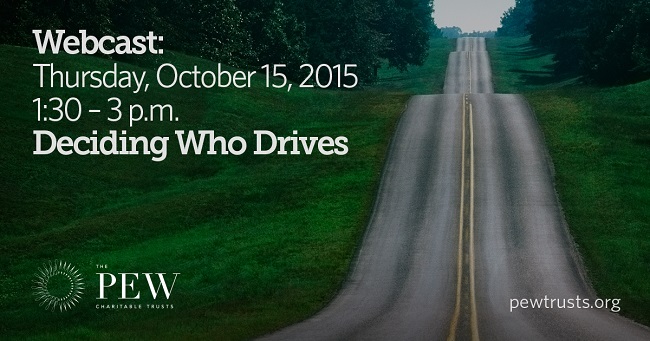Deciding Who Drives
State officials discuss policy approaches to providing driver’s licenses for unauthorized immigrants
U.S. citizens and lawful immigrants can routinely obtain and renew driver’s licenses, and some states have decided to allow unauthorized immigrants to do so as well. As of the summer of 2015, 10 states—California, Colorado, Connecticut, Illinois, Maryland, Nevada, New Mexico, Utah, Vermont, and Washington—and the District of Columbia issue driver’s licenses to this population. Nearly 37 percent of unauthorized immigrants live in jurisdictions where they may obtain licenses.
State legislative activity on this issue has increased in recent years. In 2013 alone, eight states and the District passed laws making unauthorized immigrants eligible for driver’s licenses. (One was later repealed.) This year, Delaware and Hawaii passed similar laws, and they are preparing to implement them.
To inform the dialogue on whether and how to license unauthorized immigrants, The Pew Charitable Trusts will bring together policymakers, practitioners, and researchers to discuss the decisions that states must make to allow unauthorized immigrants to drive legally.

Pew experts will share findings about how the states that issue licenses to unauthorized immigrants have designed and implemented their laws. A panel discussion with officials from California, Delaware, and Nevada will follow. Because this issue is dynamic, these state experiences can inform how policymakers grapple with similar decisions in other states.
Register to attend in person or return to this page Thursday, Oct. 15, for the live webcast.
Speakers
Terri Albertson, administrator, Management Services and Programs Division, Nevada Department of Motor Vehicles
Erika Contreras, chief of staff, Office of California State Senator Ricardo Lara
Scott Vien, director, Division of Motor Vehicles, Delaware Department of Transportation
Michele Waslin, officer, Pew
Moderator
Adam Hunter, director, Pew
Agenda
| 1–1:30 p.m. | Registration and refreshments |
| 1:30–3:00 p.m. | Panel discussion |





